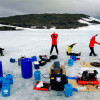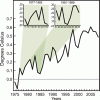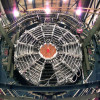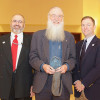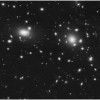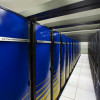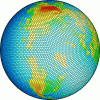News Archive
IMG ER Goes Primetime: Provides Expert-Driven QC for Microbial Genome Information
WALNUT CREEK, CA—After a genome is sequenced and automatically annotated, researchers often manually review the predicted genes and their functions in order to improve accuracy and coverage across the vast genetic code of the particular target organism or community of organisms. These annotations drive the publication of high-profile science relevant to advancing bioenergy research and our understanding of biogeochemistry—the biological, chemical, physical, and geological processes… Read More »
Speeding Up Science Data Transfers Between Department of Energy Facilities
As scientists conduct cutting-edge research with ever more sophisticated techniques, instruments, and supercomputers, the data sets that they must move, analyze, and manage are increasing in size to unprecedented levels. The ability to move and share data is essential to scientific collaboration, and in support of this activity network and systems engineers from the Department of Energy's (DOE) Energy Sciences Network (ESnet), National Energy Research Scientific Computing Center (NERSC) and Oak Ridge Leadership Computing Facility (OLCF) are teaming up to optimize wide-area network (WAN) data transfers.
Read More »
Five Berkeley Lab Mathematicians among First Group of Fellows Named by Society for Industrial and Applied Mathematics
BERKELEY, Calif.—Five renowned mathematicians—John Bell, Alexandre Chorin, Phillip Colella, James Demmel and James Sethian—at the U.S. Department of Energy's (DOE) Lawrence Berkeley National Laboratory are among the first group of Fellows announced May 1 by the Society for Industrial and Applied Mathematics (SIAM). Read More »
Climate Experts Warn that Short-Term Snapshots of Temperature Data Can Be Misleading
BERKELEY, Calif.—In the hotly debated arena of global climate change, using short-term trends showing little temperature change or even slight cooling to refute global warming is misleading, write two climate experts in a paper recently published by the American Geophysical Union, especially as the long-term pattern clearly shows human activities are causing the earth’s climate to heat up. Read More »
PerfSONAR Helps Accelerate Big Science Collaborations
In the arena of high-performance networking, it’s easy to track down “hard failures” such as when someone breaks or cuts through a fiber link. But identifying “soft failures,” like dirty fibers or router processor overload, is challenging. Such soft failures still allow network packets to get through, but can cause a network to run 10 times slower than it should and also account for the majority of performance issues that users experience. Read More »
ESnet Connects STAR to Asian Collaborators
The Department of Energy's Energy Sciences Network (ESnet), the Korea Research Environment Open Network2 and the Global Ring Network for Advanced Applications Development achieved a sustained data transfer rate of 1 gigabit per second (Gbps), equivalent to transporting 120 minutes of video per second, between the Brookhaven National Laboratory in New York and the Korea Institute of Science and Technology Information in Daejeon, South Korea. Read More »
Department of Energy's ESnet Wins 2009 Excellence.Gov Award for Effectively Leveraging Technology
WASHINGTON, D.C. — The U.S. Department of Energy's Energy Sciences Network (ESnet), a high-speed network linking tens of thousands of researchers around the nation, was honored on April 14, 2009 with an Excellence.Gov award for its achievements in leveraging technology. Read More »
NERSC’s Deep Sky Project Provides a Portal into Data Universe
Every night approximately 3,000 astronomical files flow to the National Energy Research Scientific Computing (NERSC) Center from automated sky scanning systems all over the world for archiving. After a decade of collecting, the center currently holds over 8 million images, making this one of the largest troves of ground-based celestial images available. Read More »
Berkeley Lab Checkpoint Restart Improves Productivity
A combustion researcher may run a huge simulation of a laboratory-scale flame experiment on a supercomputer to better understand the turbulence-chemistry interactions that affect fuel efficiency. But if the system crashes, then all the data from the run is lost and the user has no choice but to start over. Read More »
Green Flash Project Runs First Prototype Successfully
Berkeley Lab’s Green Flash project, which is exploring the feasibility of building a new class of energy-efficient supercomputers for climate modeling, has successfully reached its first milestone by running the atmospheric model of a full climate code on a logical prototype of a Green Flash processor. Read More »







 Instagram
Instagram YouTube
YouTube